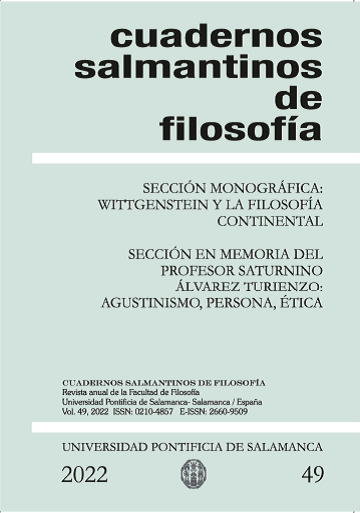Wittgenstein and the logic positivism of Vienna circle in front of metaphysics Two different silences
Main Article Content
In this work, some authors whose writings affected Wittgenstein are collected, with the intention of better understanding, in their relations with the Vienna Circle, the contributions of the “last philosopher” to continental philosophy, a tradition that was always close to him, as will be shown here, although at first, he was inserted fully into analytic philosophy. Neopositivism was contrary to religion and metaphysics, and for this reason, when the philosophers included in this group read the Tractatus, they disregarded the sentences of this work in which Wittgenstein presents the concept of the mystical and highlighted his criticisms of philosophy. However, although he was not well understood at the time, his concerns were always the same, as can be observed through the various phases of the evolution of his thinking. Among his intellectual and even literary influences and admirations, Wittgenstein mentioned Tolstoy, Augustine of Hippo, Schopenhauer, Kierkegaard, Mauthner, Weininger, Spengler, among others. Through them it is intended to show the deep disagreement, from the beginning, of the Austrian philosopher with Vienna Circle, regarding metaphysics, and by delving into the so called Second Wittgenstein, that shakes the limits of language through the “language games” and the “other point of view”, it is revealed his closeness to continental Philosophy, in the sense of understanding language, more from contextual and historical aspects than from the importance of the verification principle, so
important in the Anglo-Saxon analytical tradition.

